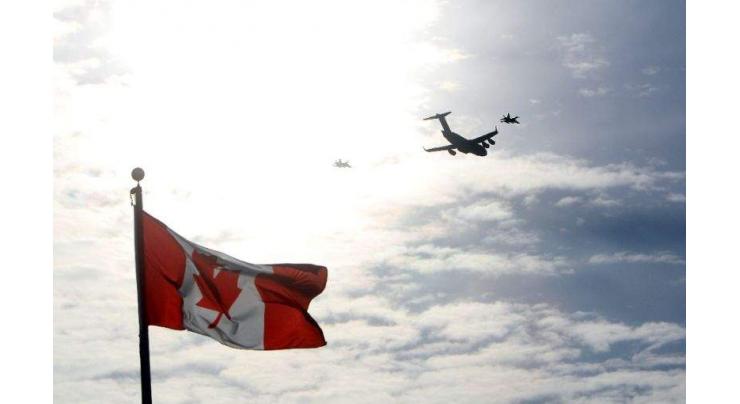
Canada Military Raises Torture Objections
Muhammad Rameez Published January 27, 2017 | 01:50 AM

OTTAWA, (APP - UrduPoint / Pakistan Point News - 27th Jan, 2017 ) : The Canadian military objected to the use of torture as an interrogation technique Thursday after US President Donald Trump said he thinks it works against the Islamic State militant group.
"That is against what the Canadian Armed Forces believes and against our direction, so we will not be going into any type of activity like that," Brigadier-General Shane Brennan, commander of Canadian troops in Iraq, told a briefing.
"Torture is against the Canadian Armed Forces conduct," he said. "It's against the Geneva Convention." Canada's military and security services work closely with their US counterparts, which has led to a handful of post-9/11 rendition and torture controversies.
A Canadian engineer was arrested by US officials in 2002 on a tip-off from Canadian Federal police and sent to Syria and tortured for one year, before being cleared. Three other Canadians suspected of Al-Qaeda links also claimed to have been tortured by Syrian military intelligence during trips abroad from 2001 to 2004, saying that Canadian security officials had supplied their captors with intelligence and questions to pose to the detainees.
Trump voiced support for torture in a television interview Wednesday with ABC news, saying it was necessary to "fight fire with fire" in the face of the beheadings of Americans and other atrocities by Islamic State militants.
But he added he would defer to the advice of Pentagon chief James Mattis and Central Intelligence Agency director Mike Pompeo. Mattis and Pompeo have voiced support of current US rules banning the use of torture in prisoner interrogations.
The previous Canadian administration ordered a stop to the use of foreign intelligence that may have been derived from the use of torture, after a public outcry, but an exception was made in cases of imminent threats. Prime Minister Justin Trudeau's government is currently reviewing those security protocols.
Related Topics
Recent Stories

IMF Officials assure support to Pakistan’s economy

Naqvi directs foolproof measures for protection of Chinese nationals

Israel carries out attack inside Iran, report US media

Saudi Assistant Minister of Defence calls on army chief

Currency Rate In Pakistan - Dollar, Euro, Pound, Riyal Rates On 19 April 2024

Today Gold Rate in Pakistan 19 April 2024

Rock-solid Ruud racks up season-leading win in Barcelona

At UN, Iran says it will make Israel 'regret' reprisals

G7 hears calls for 'critical' Ukraine aid

EU seeks to leverage might to confront China, US challenge

5 Customs officials martyred as their vehicle ambushed by terrorists in D I Khan

Pak-New Zealand match called off due to rain
More Stories From World
-
Remote Indonesia volcano Mount Ruang erupts again
1 minute ago -
China to play 'constructive role' to ease tensions after reported strike on Iran
12 minutes ago -
Explosions in Iran as US media reports Israeli strikes
22 minutes ago -
Italy urges 'de-escalation' as G7 to discuss reported strike on Iran
41 minutes ago -
Indonesia on alert for more eruptions from remote volcano
41 minutes ago -
5.0-magnitude quake hits Alaska Peninsula
50 minutes ago
-
Foreign-invested firms in China up 20.7 percent in Q1: data
50 minutes ago -
China launches digital database of classic graphics
50 minutes ago -
Hindu nationalist Modi the favourite as India votes
51 minutes ago -
Two detained in Poland for attack on Navalny ally: Lithuania president
51 minutes ago -
International reactions after Israel's reported attack on Iran
51 minutes ago -
Eight killed in overnight Russian strikes, as Ukraine downs bomber
51 minutes ago